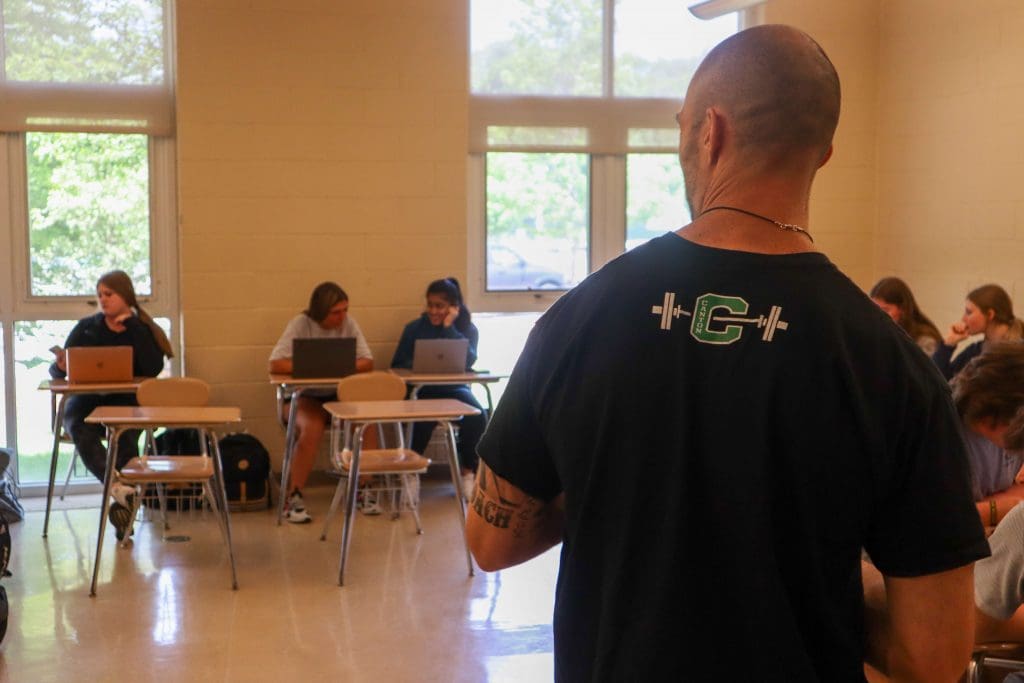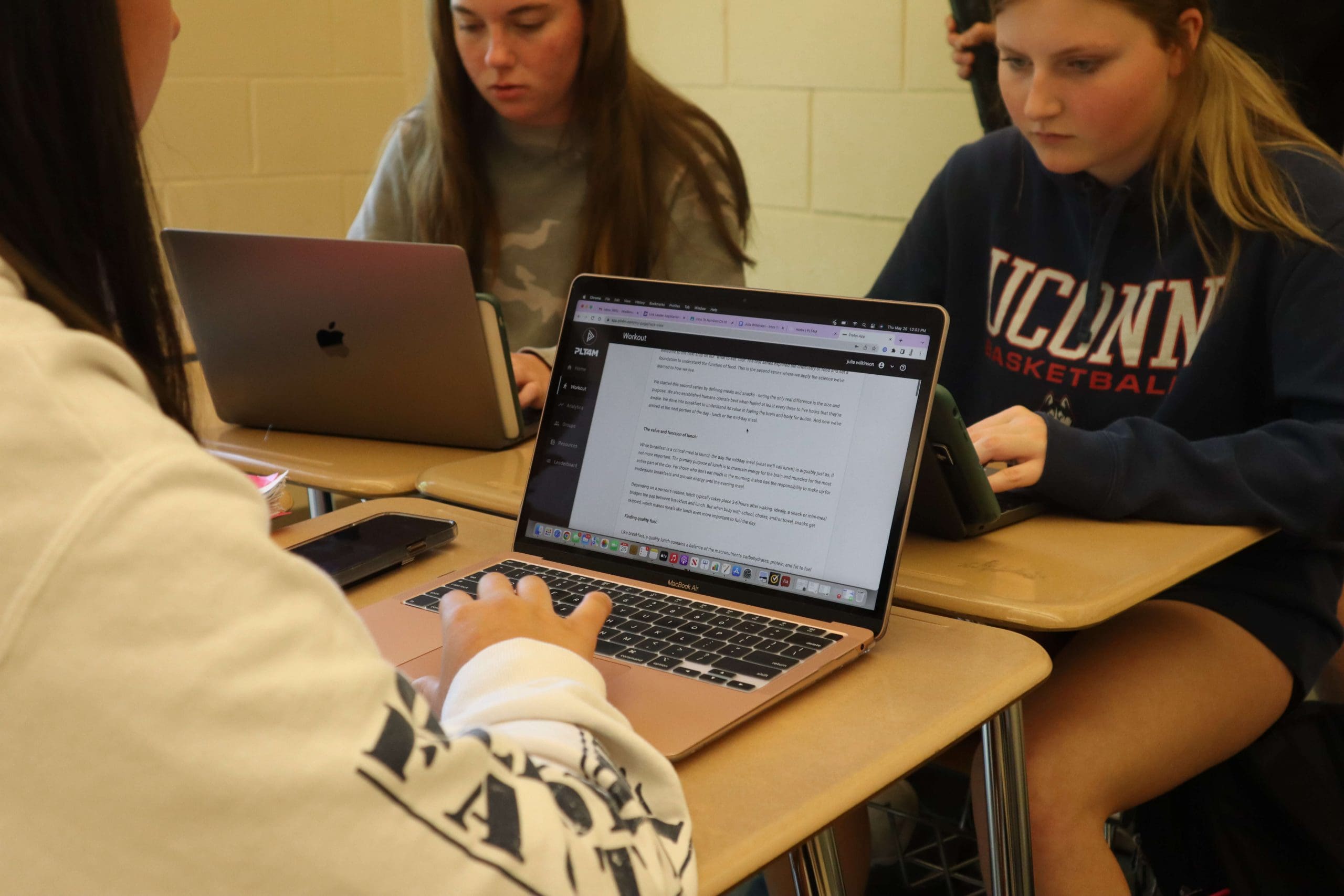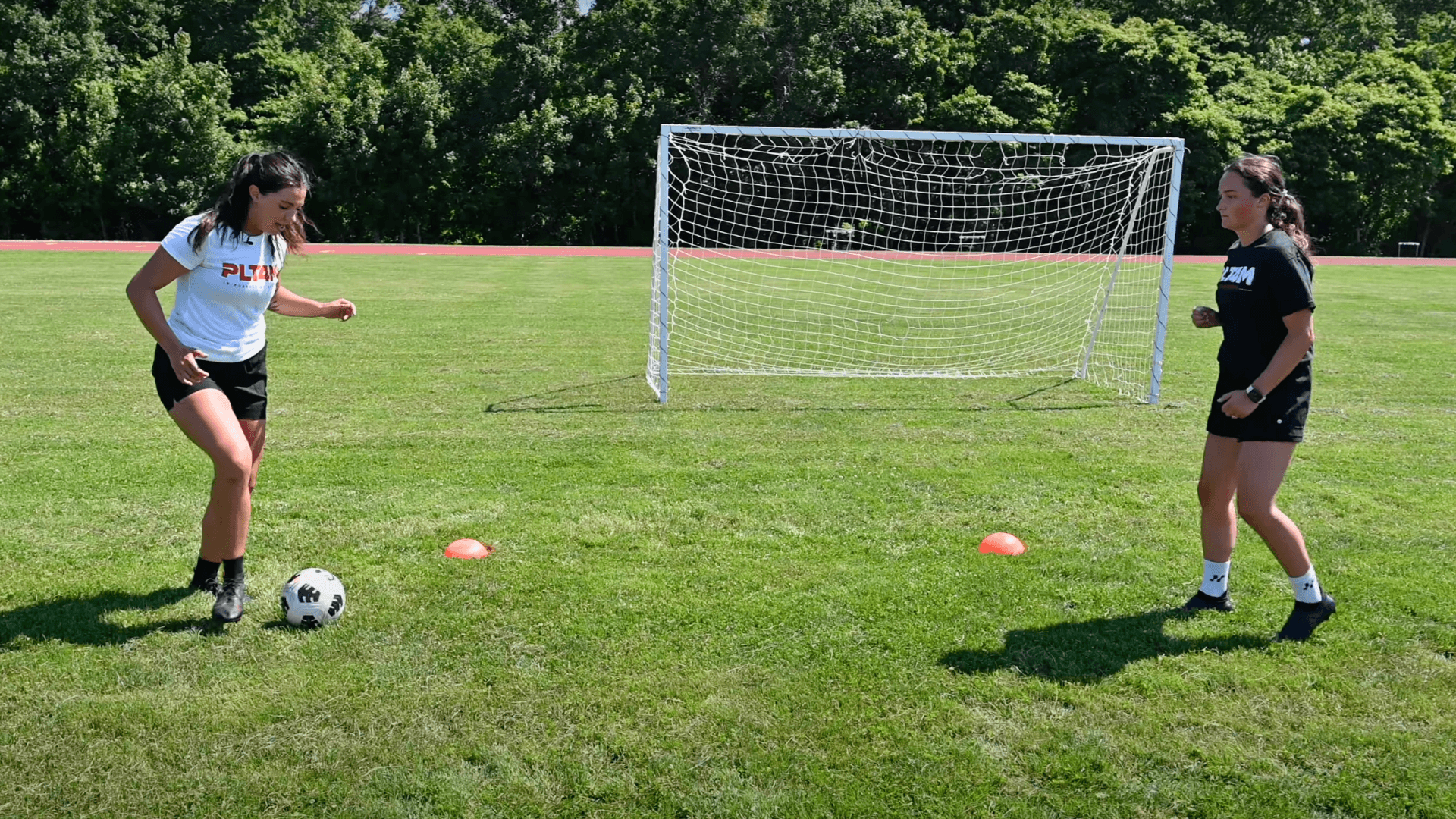We all sleep. But we don’t always get the quantity or quality sleep needed to perform at our best. And most students probably don’t realize the power and impact of sleep on our physical, mental, and emotional well-being. Sleep lesson plans can empower students with the knowledge and skills to tap into the power of sleep for overall health and wellness.
Importance Of Sleep Lesson Plans For Students
In the hustle and bustle of school and life, it’s easy for students to underestimate the importance of a good night’s sleep. In fact, students struggle with the quantity and quality of sleep that can promote better overall health.
Quantity: The National Sleep Foundation (NSF) is a leading authority on sleep medicine and research and has provided statistics on sleep needs or optimal sleep duration across different age groups. Research has found that 73% of high school students don’t get enough sleep based on the 8-10 hours recommended for 14-17-year-olds.
Quality: Beyond getting enough sleep, many students struggle with sleep quality because of external factors like diet, exercise, and sleep hygiene habits. Many students struggle to fall asleep, stay asleep, and have restful, restorative sleep. For example, blue light from phones and other devices can interfere with the production of the sleep hormone melatonin.
Altogether, sleep lesson plans can help educate students on the basic science of sleep and how it relates to their healthy sleep habits. If students can understand the profound impact of sleep on their physical, mental, and emotional well-being, they can make more informed decisions for their sleep behaviors.
Sleep Education In Schools
Where do sleep lesson plans fit into the school day? Integrating sleep education into physical education and health classes is a progressive step towards fostering holistic well-being among students.
Incorporating sleep lesson plans into PE and health is also a natural fit. By addressing sleep education within the context of physical education and health, students not only learn about the physiological benefits of sleep but also understand its relevance to their athletic performance, mood regulation, and overall lifestyle.
In addition, sleep lesson plans can be a full unit, or added as supplemental content into weekly physical activity lesson plans.

Topics For Sleep Lesson Plans
Sleep education can be a fun and informative experience for students. Teachers can cover key topics around sleep science and how it relates to a healthy lifestyle. Moreover, sleep lesson plans can challenge students to consider their sleep habits and consider steps to get a better night’s sleep consistently.
PLT4M offers an introductory unit that explores sleep education through 10 sleep lesson plans. The 10 lesson topics are:
Benefits Of Sleep – An initial exploration of the physical, mental, and emotional benefits of a good night’s sleep.
Lack Of Sleep – A closer look at the recommended amount of sleep and the impacts of sleep deprivation/debt.
Sleep Cycles & Stages Of Sleep – The science behind our sleep patterns and the 4 stages of sleep (awake, light, SWS, and REM).
Circadian Rhythm – How our body’s internal clock regulates sleep and wake habits, eating, and more.
Dreams – Connecting the dots between REM sleep and the science of dreams.
Sleep Hygiene – A breakdown of habits and practices that contribute to the quantity and quality of sleep.
Naps – The science of the mid-day snooze and how it can boost alertness, memory, and more.
Common Sleep Disorders – How various conditions disrupt standard sleep patterns, leading to various physical and mental health issues.
Substances Impact On Sleep – What we put into our bodies can profoundly affect the body’s ability to fall asleep and have a restful sleep.
Monitoring Your Sleep – Taking all that we learned about sleep, students can start to monitor sleep through sleep logs or technology if they want to take the next step in a better night’s sleep.
2 Free Example Sleep Lesson Plans
Want to get a taste of how PLT4M teaches sleep education? PLT4M sleep lesson plans have a brief overview video paired with an in-depth written article. In addition, sleep lesson plans culminate with a 3-4 chapter questions to check for learning and understanding.
Below are two free sleep lesson plans for middle and high school students.
Lesson Plan: Benefits Of Sleep
In the hustle and bustle of school and life, with assignments piling up, extracurricular activities demanding attention, and social lives buzzing, it’s easy to underestimate the importance of a good night’s sleep. However, there are a multitude of benefits of sleep, impacting not only your academic performance but also your overall health and well-being. We all need sleep and our body benefits physically, mentally, and emotionally. Let’s start out our sleep journey by understanding the benefits.
1. Enhanced Learning and Memory:
Imagine sleep as the secret ingredient to boosting your brainpower. During the deep sleep stages (more on this in future lessons), your brain is hard at work consolidating memories, organizing information, and making connections between new and existing knowledge. This means that a solid night’s sleep can significantly enhance your ability to learn and remember what you’ve studied, helping you perform better in school, work, and life. (1)
2. Improved Concentration and Focus:
Pay attention! Ever find yourself zoning out in class or struggling to concentrate during a study session? A lack of sleep might be the culprit. Lack of sleep can impair your cognitive function, making it difficult to pay attention and stay focused. But a well-rested mind, on the other hand, is alert, attentive, and ready to tackle the challenges of the day with vigor. (2)
3. Better Mental and Emotional Well-Being:
Ever had a bad night sleep and feel grumpy or agitated? A lack of sleep can take a major toll on our mental and emotional well-being. For example, lack of sleep has been linked to increased stress, anxiety, and irritability. Sleep plays a crucial role in regulating mood and emotional well-being. By prioritizing quality sleep, you can better manage the emotional rollercoaster of life and approach challenges with a more positive mindset. (3)
4. Physical Health and Immune System Support:
Beyond the mental benefits, sleep is essential for maintaining our physical health. During sleep, your body engages in repair and regeneration processes, strengthening the immune system and supporting overall well-being. Consistent, quality sleep is associated with a lower risk of illnesses and can help you recover faster if you do happen to get sick. (4)
5. Enhanced Physical Activity and Athletic Performance:
For the student-athletes among us, sleep is a critical factor in achieving peak performance. Sleep contributes to improved reaction times, faster recovery, and enhanced endurance. Consider sleep as a natural performance enhancer that can give you the edge in both sports and academics. And even if you aren’t a student-athlete, these benefits also help support our journey in fitness and physical activity. (5)
The Power Of Sleep
Sleep has a myriad of benefits that can support our physical, emotional, and mental-well being. In our busy lives of school, extracurricular activities, and social responsibilities it is crucial that we understand the importance of sleep.
As we dive into more sleep lesson plans, remember that whether you want to do better in school, sports, or just feel happier and healthier, sleep is an important part of your day and life.
Sources:
1. Stickgold, R. (2005). Sleep-dependent memory consolidation. Nature Reviews Neuroscience, 6(3), 218-229.
2. Kilgore, W. D., et al. (2010). The relationship between sleep deprivation and the effects on attention and reaction time: A review. Journal of Sleep Research, 19(4), 270-281.
3. Walker, M. P. (2009). The role of sleep in cognition and emotion. Sleep Medicine Reviews, 13(3), 279-286.
4. Besedovsky, L., et al. (2019). The sleep-immune crosstalk in health and disease. Annual Review of Immunology, 37, 293-322.
5. Skein, M., et al. (2013). Sleep and athletic performance: The effects of sleep loss on exercise performance, and physiological and cognitive responses to exercise. European Journal of Sport Science, 13(3), 403-419.
Chapter Questions:
1) How does sleep enhance learning and memory?
2) How does sleep help you prevent getting sick?
3) How does sleep support emotional and mental health?
Lesson Plan: Lack Of Sleep
We all need to sleep! But most of us don’t get enough. And if you are like most people, you likely think you can get away with less sleep than you “need.” In a fast-paced world filled with friends, work, technology, and life commitments, it can be tempting to put off sleep for other exciting or important things. But we need to sleep! Let’s look at the recommended amount of sleep and the impacts and consequences of a lack of sleep.
National Sleep Foundation’s Guidelines
The National Sleep Foundation (NSF) is a leading authority on sleep research and has provided statistics on sleep needs or optimal sleep duration across different age groups. According to the NSF, they have listed these sleep time suggestions for the following groups:
6-13 years old: 9-11 hours
14-17 years old: 8-10 hours
18-64 years old: 7-9 hours
These guidelines are grounded in extensive research that highlights the vital role of sleep in cognitive function, emotional well-being, and overall physical health.
While general recommendations exist, it’s important to recognize the individual variability in sleep needs. People can function at their bests with slightly more or less sleep than the recommended range. Factors such as genetics, lifestyle, and overall health can influence an individual’s specific sleep requirements.
But, research has found that 73% of high school students don’t get enough sleep. What about you? And while you might think you can get by on a lack of sleep, let’s look at some of the consequences of not getting enough nightly rest.
Consequences of Lack Of Sleep
Sleep deprivation, or sometimes called sleep debt, is characterized by consistently inadequate or poor-quality sleep, and can have major consequences on both physical and mental health. As we look deeper into the effects of sleep debt, it becomes evident that prioritizing quality and consistent sleep is not just a luxury but a necessity for overall well-being.
Cognitive Impairments:
One of the most immediate and noticeable consequences of sleep deprivation is cognitive impairment. Lack of sleep can lead to difficulties with concentration, memory recall, and decision-making. So even though you might want to stay up late and cram for your test, getting a good night’s sleep can actually boost our cognitive performance.
Emotional Well-being:
Did you ever wake up from a bad night’s sleep and feel grumpy the rest of the day? The relationship between sleep and emotional health is intricate. Sleep deprivation or sleep debt is associated with heightened emotional reactivity, increased irritability, and a greater susceptibility to stress. Moreover, individuals experiencing chronic sleep deficiency are more prone to mood disorders, including anxiety and depression.Addressing sleep issues can often be a key component in managing and preventing these mental health challenges.
Weakened Immune Function:
A well-rested immune system is better equipped to defend the body against infections and illnesses. In contrast, insufficient sleep weakens the immune response, making individuals more susceptible to common colds, flu, and other infections. This compromised immune function can have long-term health implications and hinder the body’s ability to recover from illnesses.
Increased Risk of Accidents:
Fatigue resulting from sleep deprivation can impair coordination and reaction times, significantly increasing the risk of accidents. This is particularly concerning when it comes to activities that demand alertness, such as driving. Studies have shown that drowsy driving can be as dangerous as driving under the influence, highlighting the critical importance of prioritizing sufficient sleep for personal and public safety.
Long-Term Consequences
Chronic sleep deprivation is not just a short-term issue; it can have lasting consequences.
Chronic sleep deficiency has been associated with an increased risk of cardiovascular diseases, including hypertension and heart attacks. Moreover, the risk of developing metabolic disorders such as diabetes is elevated in individuals who consistently experience inadequate sleep.
Research has linked prolonged inadequate sleep to an increased risk of neurodegenerative diseases such as Alzheimer’s and Parkinson’s. These findings underscore the importance of recognizing and addressing sleep deficiencies early on to mitigate the potential long-term health impacts.
Conclusion:
The science of sleep underscores the significance of obtaining an adequate amount of rest each night for optimal health and well-being. By understanding the recommendations provided by authoritative sources like the National Sleep Foundation and diving into the scientific reasons behind these guidelines, individuals can make informed choices to prioritize and improve their sleep habits. As we unravel the mystery of sleep, it becomes clear that investing in quality sleep is an investment in our long-term health and vitality.
More on all of this in future sleep lesson plans!
Sources:
1. Walker, M. (2017). Why We Sleep: Unlocking the Power of Sleep and Dreams. Scribner.
2. Cappuccio, F. P., D’Elia, L., Strazzullo, P., & Miller, M. A. (2010). Sleep duration and all-cause mortality: a systematic review and meta-analysis of prospective studies. Sleep, 33(5), 585-592.
1) What is the recommended amount of sleep 14-17 year olds should get?
2) What percentage of high school students don’t get enough sleep?
3) List three short term consequences of lack of sleep?
4) What are the long term consequences of lack of sleep?
Key Takeaways On Sleep Lesson Plans
Sleep has a myriad of benefits that can support our physical, emotional, and mental-well being. In our busy lives of school, extracurricular activities, and social responsibilities it is crucial that students understand the importance of sleep.
Whether you want to do better in school, sports, or just feel happier and healthier, sleep is an important part of your day and life. Sleep lesson plans can play a crucial role in promoting sleep for students of all ages.
FAQs
What other types of lessons does PLT4M offer?
PLT4M has over 1,000 on demand lessons covering a wide range of fitness, health, and wellness topics. Explore them below:
- Weight Training
- Dance Fitness
- Nutrition
- Mindfulness
- Yoga
- Pilates
- Boxing
- Bootcamp
- Remote Learning
- Swimming
- Pickleball
- Kan Jam
What other health education topics does PLT4M have?
Check out more health education lesson plans from PLT4M here! Different topics include:
- Nutrition
- Digital Citizenship
- Drug and Substance Education
- Underage Drinking Prevention
- Physical Literacy
- Personal Hygiene
- Social Emotional Learning
Does PLT4M offer professional development for teachers?
Yes, PLT4M has a wide range of physical education professional development opportunities.









